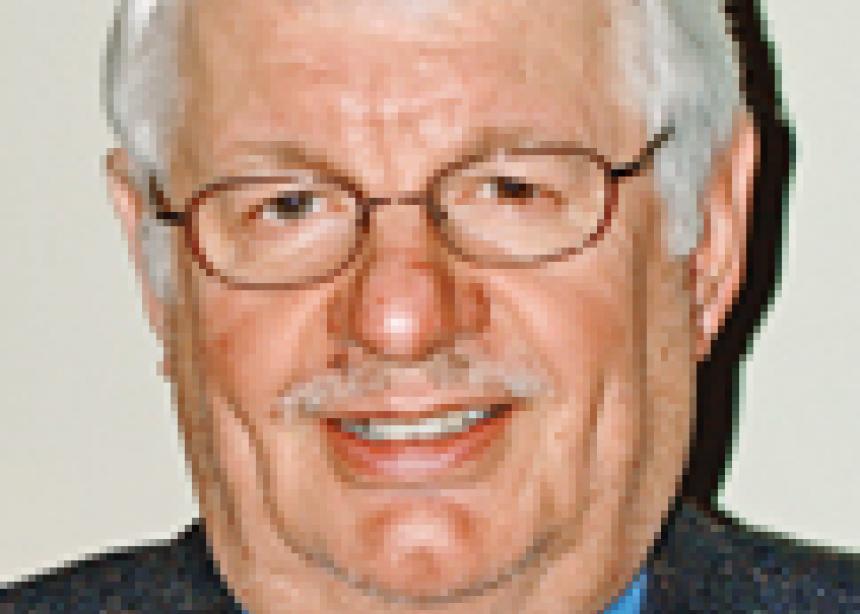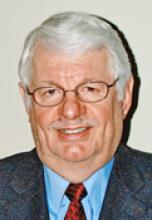“Discernment,” a word in vogue right now among church leaders and theologians, can seem abstract, almost pedantic, and elusive as an operative term for the person in the pew. We seem to use it a lot these days as we wend our way through issues that confront us as followers of Jesus in the 21st century.
What does it mean? It sounds important and impressive, something we should take seriously.
Our writer, David Rogalsky, attempts to break it down in our major theological feature (page 4) by pointing back to the contentious Jerusalem Council as described in Acts 15. If we think that facing thorny issues in the church is unique to our day and time, take time to review what the first Christian leaders, Paul, Barnabas and Peter, were up against in shaping the early church centuries ago.
Their teaching about Jesus’ acceptance of all new believers, regardless of creed, was hitting a brick wall with some of the orthodox Jews who had become Christians. Steeped in the orthodoxy of the Torah, these new converts, while wanting to accept the “worldly” gentiles, were certain there should be a higher price of discipleship in becoming members of this new family of God. They insisted that the newly converted gentiles, with no religious background, be circumcised as a sign they were truly committed to a new way of life.
Sound familiar to any of our discussions today? Do you hear an echo?
A division between the traditionalists and those who want to push the edges for acceptance in a post-Christian world.
In the case of the early church, the only saving factor in this contentious division, was, as Rogalsky points out, the council heeding Paul’s call for unity rather than someone being right: “Paul’s teaching did not choose between the factions, but allowed these deep differences to exist in the church as a way of encouraging mutuality and fellowship, a unity in diversity.”
That process of prioritizing unity is called discernment. In the apostle’s view, it was more important to hold the body together than to decide which side is the most “right.” Then, as it is today, this “agreeing to disagree” is a sign of spiritual health, a measure of the strength and durability of the fabric of the church or a congregation.
The Mennonite church today, born of a protest movement nearly 500 years ago, is facing a plethora of issues as it strives to be faithful to Jesus in a world growing more and more estranged from things “Christian.” In our struggle, we are often tempted to go after each other rather than to focus on what we have to offer “together” to a world of lonely persons, a world of violence, of growing poverty and injustice, a planet steadily degrading its environment.
Because we proudly separated ourselves from the state church 500 years ago as a protest to its corruption and authoritarian hierarchy, we seem to have “protest” in our religious genes. We have been extremely fractious over the years, forming many separate groups as sons and daughters of Menno. When disagreeing on doctrinal/ethical issues, we have tended to just walk away from each other and form another more “purist” group.
This is something we need to get over. How do we progress to a greater maturity? By placing the discernment process front and centre. It is more important that we stay together than it is to be right.Many of our theologians get it; now we as the body politic must get it, too.
One of our theologians, Ted Grimsrud from Eastern Mennonite University, said it well when writing for the Anabaptist-Mennonite Scholars Network, back in 2001: “I believe the central tension we face today is best seen in the church’s openness to understanding its mission in the framework of the centrality of ongoing discernment (italics mine) and dynamic engagement with a changing world.
“When the church understands its work in this creative way, it will welcome the contributions of all its members, each exercising one’s gifts in service of the discerning work of the church. These needed contributions include the work of our theologians. If the church, instead, takes on the task of simply defending past orthodoxies and protecting its social status, then it will stifle many of its gifted members—not only theologians.”
That’s taking discernment out of the classroom, or from the pulpit, and putting it squarely in the pew—a core belief of past and present Anabaptists.




Comments
Unity at any cost?
I'm not convinced that "agreeing to disagree" [Editorial] is always "a sign of spiritual health," or that it's what the Bible advocates. "Agreeing to disagree" can too easily be an excuse for not engaging in serious discernment of what the Spirit is saying to us.
Clearly unity is important in the Acts 15 discussion and in Paul's responding to issues in the various Christian communities. However designating unity as our highest priority over anything can leave us hostage then to the notion that any personally held feeling or conviction is therefore valid and needs to be respected and accepted.
Even in the Acts 15 discernment what was seen as "good to the Holy Spirit and to us" was to identify certain behaviour: idolatry, sexual immorality, and consuming blood, as behaviour inappropriate for those in the body. And yes as you say, some of these issues do "sound familiar to our discussions today."
So yes let us give a measure of value to our unity but let us also take our discernment process seriously before too quickly throwing in the towel and simply "agreeing to disagree."
Jim Brown
Add new comment
Canadian Mennonite invites comments and encourages constructive discussion about our content. Actual full names (first and last) are required. Comments are moderated and may be edited. They will not appear online until approved and will be posted during business hours. Some comments may be reproduced in print.